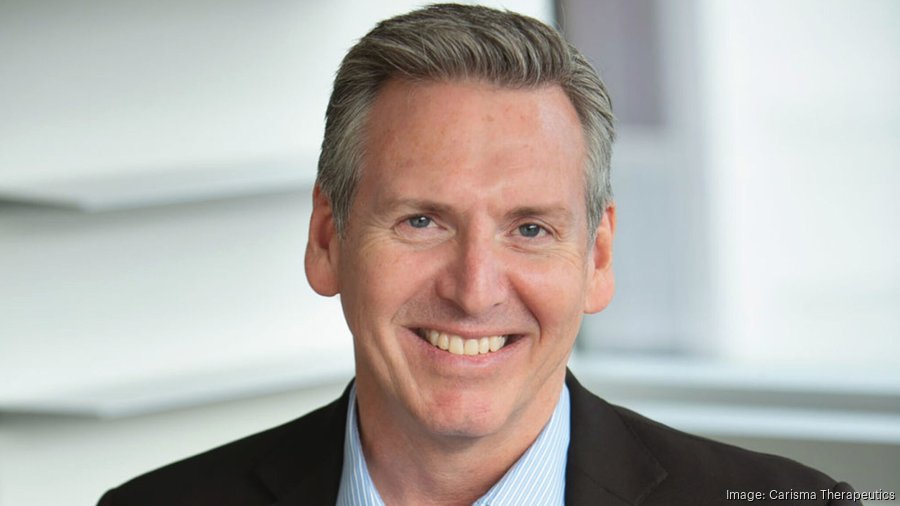Listen to this article 3 min
University of Pennsylvania spinout Carisma Therapeutics said Monday its plans to reduce its workforce by 37% during the second quarter as part of a plan to narrow its research focus and conserve cash.
The Philadelphia cell therapy developer working on new cancer treatments started the year with 107 employees, which translates into about 40 workers getting laid off.
Along with the job cuts, Carisma (NASDAQ: CARM) said going forward its plans to prioritize CT-0525, an experimental solid tumor cell therapy. The company, spun out of Penn in 2016, received Food and Drug Administration approval to begin human testing of CT-0525 late last year.
"We have made the decision to focus our resources on the clinical development of the product we believe is best suited to deliver benefit to patients with significant unmet need," said Steve Kelly, CEO of Carisma, in a statement. "We have also undertaken a careful review of our business and prioritized our other pipeline programs on those with the greatest overall potential and near-term milestones to reduce expenses and streamline operations, including a restructuring of our workforce."
The company said it will cease further development of CT-0508, a new drug candidate that had been under development as a potential treatment for a wide range of solid tumors. Carisma is also pausing the development — pending additional financing — of CT-1119, a cell therapy being studies as a treatment for mesothelin-positive solid tumors linked to a variety of cancer types including ovarian, pancreatic, lung and uterine cancer.
Carisma said it will continue its collaboration with Moderna, under which the two companies are work together to develop potential cancer treatments that incorporate Carisma's in vivo engineered chimeric antigen receptor monocyte (CAR-M) technology.
The company is headquartered at 3675 Market St. in University City.
Carisma posted a net loss of $86.9 million in 2023, up from $61.2 million the previous year. As of Dec. 31, Carisma had cash and cash equivalents of $77.6 million, which, combined with the restructuring, is expected to be sufficient to fund the company into the third quarter of 2025.
Given the decline in capital that has flowed into the high-risk and high-reward sector during the past three years, Carisma is far from the only company in the life sciences sector locally and nationally that has needed to trim payroll and scale back research and development spending to conserve cash.
During the past two years and two months more than a dozen Philadelphia-area life sciences companies have eliminated more than full-time 650 positions, according to a Business Journal analysis,
Carisma's job cut announcement comes one year and one month after it completed a merger with Sesen Bio, a deal that allowed Carisma to become a publicly traded company without going through an initial public stock offering.
Sesen Bio of Cambridge, Massachusetts, had been exploring strategic alternatives since the summer of 2022 after it voluntarily pause the development of its most advanced product candidate, Vicineum, because of cost issues with conducting additional testing. The FDA rejected the company's new application for the experimental bladder cancer treatment in 2021.
Carisma is pioneering cell therapies involving macrophages, which are a type of cell found in stationary form in tissue, or as a mobile white blood cell, at sites of infection. The company's researchers have developed a way to genetically engineer macrophage cells with chimeric antigen receptors, or CARs, to direct a therapy to tumor cells. Its in vivo approach means cells do not need to be manipulated outside the body then re-infused in patients.





